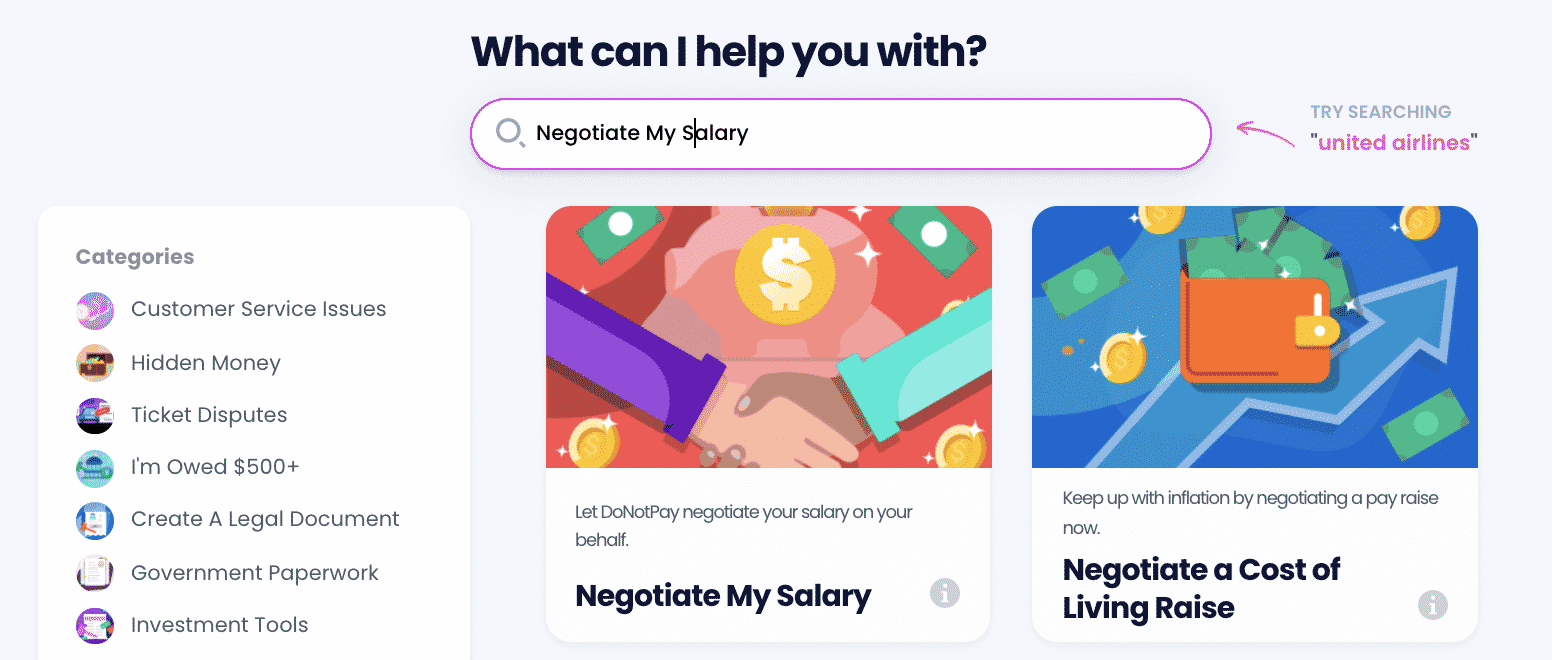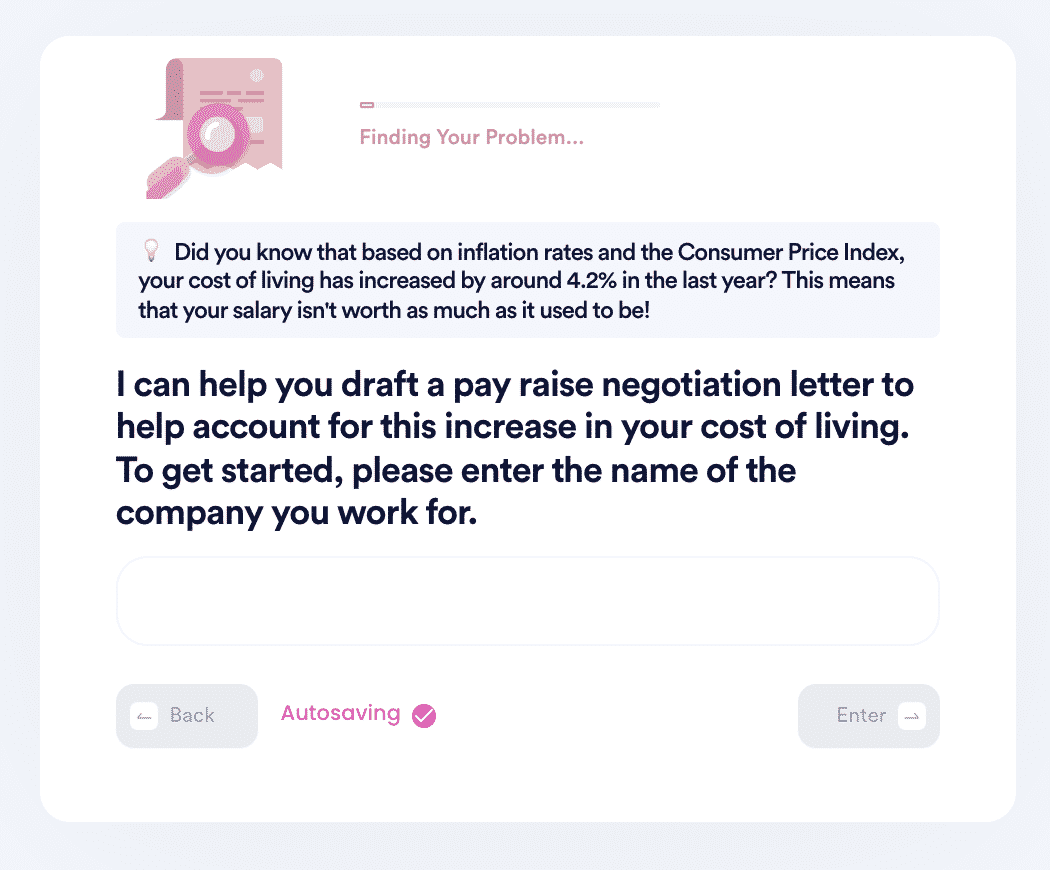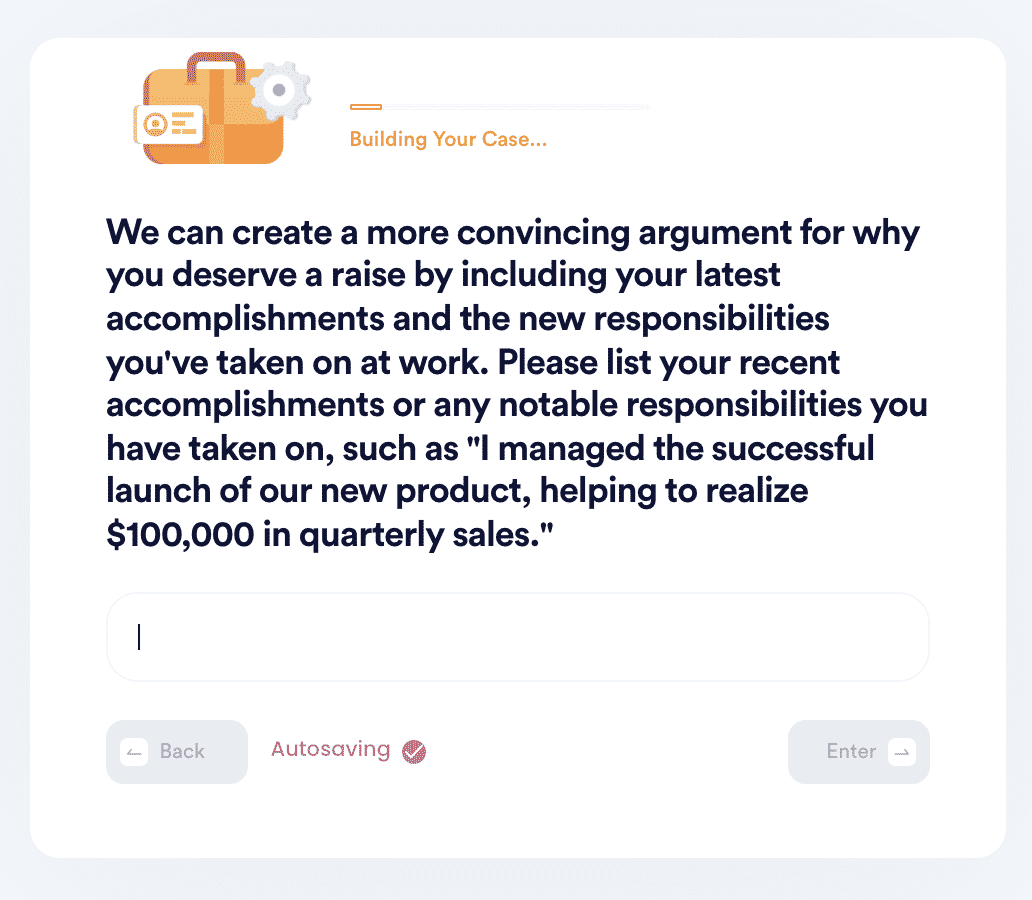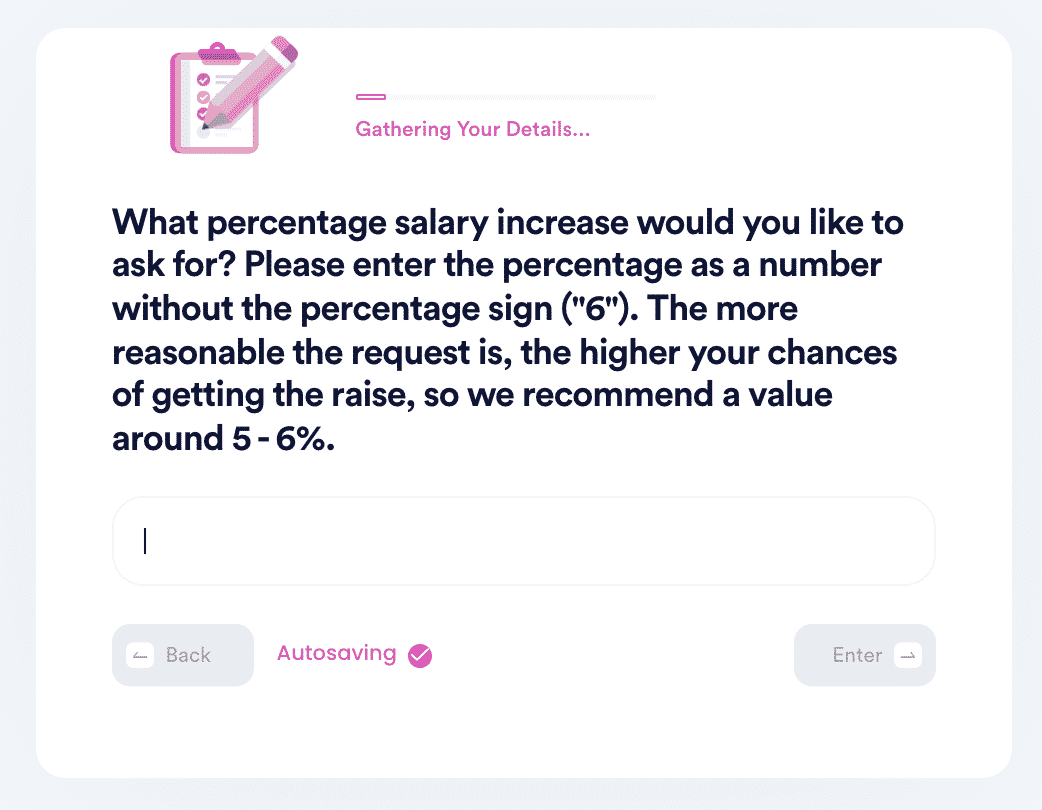No, It's Not Bad to Ask for a Raise
Have you been working really hard and now wondering if The good news is that there's nothing wrong with asking for a pay raise. This move must reflect your hard work, dedication, and the positive results you have achieved.
But asking for a pay raise can be hard and tricky because one is never sure when the right time is and the reception you are likely to get. DoNotPay is an online service that helps you write official letters for pay raise requests. This is guaranteed to get the positive attention of your managers and, hopefully, a pay raise you deserve.
How Often Should You Get a Raise?
Different companies have different ways and timings for salary raises. Most companies give a salary raise annually after conducting performance appraisals.
The appraisal period is a good time to , especially if you scored really well and you have made impactful changes within the year.
Reasons to Get a Raise
Some of the reasons for getting a pay raise include:
- Added responsibilities.
- You have stayed with the company for a long duration of time.
- Promotion.
- You have gained extra skills or qualifications.
- You have met and surpassed your targets.
- Unique skills.
How Much of a Raise Should I Get Each Year?
On average, most companies give a raise of about 3% annually. However, you can assess the situation of your company and negotiate for what reflects your set of skills or performance.
How to Ask For a Raise by Yourself
Asking for a salary raise can be hard and uncertain. This is because it's a long process and if you are not careful, it may reflect badly on you. Here are some factors you should put into consideration:
-
Preparation
You need to prepare well when asking for a pay raise. You should gather facts about the company remuneration of your skillset category. You also need to know how much you are worth and you can easily research this to have a solid case.
-
Timing
Well, timing is everything. You need to pick the best time for this engagement. Understand your organization well and pick the most appropriate time. Your annual performance appraisal, for example, is a great time to start the conversation. You can also base it on additional roles or a recent promotion.
-
Content and Justification
Your reasons for asking for a pay rise must be justified. You need to ensure that your performance is in line with the organization's objectives and that your request is well justified.
-
Next Move
Truth is, you may not get your pay raise, but this shouldn't stop you from trying. In the event your request is not achieved, you should keep an open mind. You can ask the organization to advise you on when to revisit the subject. Ask for other benefits that they may be in a position to give you.
Extra Tips for Negotiating a Raise
Here are some bonus tips for a better chance of higher pay:
| Be backed with hard data | Show evidence of what you are worth. Compile past achievements that justify your raise and how much you further help the institution. |
| Timing | Knowing when to ask is critical when asking for a higher salary. For example, don't ask for a raise when the fiscal year is about to end when budgets are already settled. |
| Be confident | If you know you are worth more than they are offering don't be reluctant to negotiate for higher pay. Advocating for yourself is a sign of confidence that can help you get the salary point you wanted. |
Next Steps for Asking for a Raise if You Can’t Do It Yourself
As we have seen, the process of asking for a pay raise can be long, frustrating, and in some instances unproductive. To avoid such frustrations, you can reach out to third-party agents such as DoNotPay to help you write official pay raise request letters to present to your boss.
DoNotPay is efficient and guarantees great results.
Ask For a Pay Raise With the Help of DoNotPay
If you want to ask for a pay raise and you are not sure of where to start, DoNotPay has you covered in these easy steps:
- Search for 'Negotiate My Salary' on DoNotPay.

- Fill in your company's name and the industry you're in for us to compile wage statistics in your field.

- Write your achievements and qualifications.

- Enter your preferred base salary.

And that's it! Once the information is finalized, DoNotPay will generate an official raise negotiation letter that you can then email or present to your employer!
DoNotPay Works Across All Companies With the Click of a Button
DoNotPay can help you negotiate for a salary increase after promotion the same way it helps you ask for a pay raise.
What Else Can DoNotPay Do?
Not only DoNotPay can help you negotiate raises, but DoNotPay can also help you with:
- Reducing property taxes
- Making cancellations
- Fighting workplace discrimination
- Help with processing chargebacks and refunds
Whether it's good or bad to ask for a pay raise is dependent on timing and the prevailing circumstances. All you need to do is to have sufficient information, justification, and understanding of your company/employer. DoNotPay offers you a quick solution to ensure you get a pay raise at the touch of a button.


